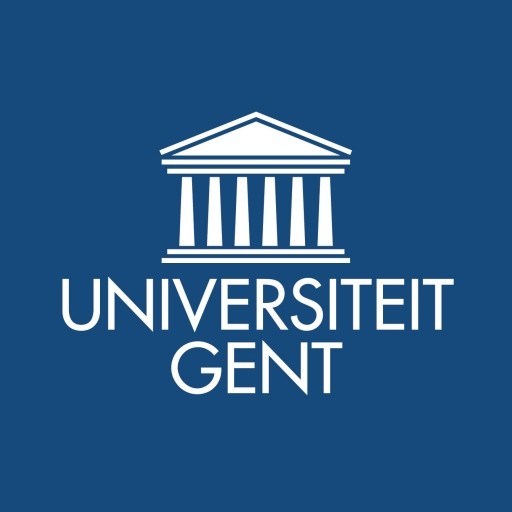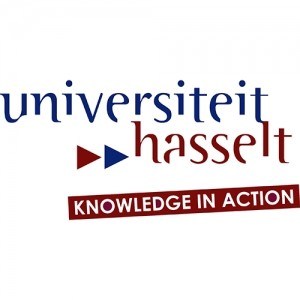Photos of university / #thefoundry_ugent
Food Technology at Ghent University offers a comprehensive and interdisciplinary education designed to prepare students for a successful career in the food industry. This programme combines principles from microbiology, chemistry, engineering, and nutrition to provide students with a broad understanding of food production, safety, quality control, and innovation. Students will explore the entire food chain, from raw material processing to the final product, gaining insights into sustainable practices and technological advancements that drive the industry forward. The curriculum emphasizes both theoretical knowledge and practical skills, incorporating laboratory work, project-based learning, and internships with leading food companies. Graduates will be equipped to develop new food products, improve existing processes, and ensure food safety and compliance with regulations. The programme fosters a critical and innovative mindset, encouraging students to engage with current challenges such as food security, environmental impact, and consumer health. With state-of-the-art facilities and close ties to industry partners, Ghent University's Food Technology programme offers an excellent platform for students to gain hands-on experience and build a professional network. Upon completion, graduates can pursue careers in food production, quality assurance, research and development, or regulatory agencies. The programme not only provides technical expertise but also promotes sustainability and ethical considerations in food innovation, preparing students to make meaningful contributions to the global food sector.
- Biochemistry and physiology of perishable crops
- Food chemistry and analysis
- Food marketing and consumer behaviour
- Food microbiology and analysis Nutrition and Dietetics
- Applied statistics
- Engineering properties and principles of food machinery
- Food processing
- Thermal processing of foods
- Transport phenomena and engineering kinetics
- Design and management of storage and distribution structures
- Low temperature processing of foods
- Mathematical planning and advanced statistics
- Food packaging and transportation
- HACCP-concepts and quality assurance: workshop
- Postharvest pest management and disease control
- Food colloids
- Functional foods
- Statistical topics in food technology
- Technology of fishery products
- Meat and meat products
- Milk and dairy technology
- Plant based food products and ingredients
- Cereal science and technology
- Food fermentations
- Food regulation: workshop
- Food safety
- Fruit and vegetable technology
- Workshop food technology
- Advanced marketing and agribusiness management
- Thesis research
Requirements
- International applicants must have obtained an academic Bachelor of Science degree (in countries in the South typically a 4-year programme) in a discipline related to the content of the programme from a recognized University, College or Institute. Candidates are expected to have basic science training (demonstrable in the transcripts) in at least 3 out of 4 of the following fields: (i) mathematics, statistics and physics, (ii) chemistry and biochemistry, (iii) biology and microbiology and (iv) engineering. They must have obtained their degree with an end result of at least second class upper or equivalent. Each application is evaluated by the Educational Committee (delegated to the Daily Organization Committee) for admission.
- Applicants are fluent in English (written and oral). All applicants who have not obtained a previous diploma in a programme taught in English in Australia, English-speaking Canada, the Caribbean Islands, Ireland, New Zealand, South Africa, the United Kingdom and the United States of America must submit a certificate proving their proficiency in English. Applicants need to have obtained a score of at least 550 on the paper-based TOEFL test (or a score of at least 79 on the internet-based TOEFL test) (sent by ETS) or a score of at least 6.5 on the IELTS test (sent by the official IELTS centre administered by The British Council or IDP Education) or provide proof of an equivalent test.
- Direct access is given to students who are, based on the specific entrance requirements of those programmes, directly admitted to the Master of Science in Bioscience Engineering: Food Science and Technology (Master of Science in de bio-ingenieurswetenschappen: levensmiddelentechnologie) at KU Leuven or to the Master of Science in Bioscience Engineering: Food Science and Nutrition (Master of Science in de bio-ingenieurswetenschappen: levensmiddelenwetenschappen en voeding) at UGent.
- Access is given to students who, based on the specific entrance requirements of those programmes, have successfully completed a preparatory programme (15 to 60 credits) or transitional programme (45 to 90 credits) that allow entrance to the Master of Science in Bioscience Engineering: Food Science and Technology (Master of Science in de Bio-ingenieurswetenschappen: levensmiddelentechnologie) at KU Leuven or to the Master of Science in Bioscience Engineering: Food Science and Nutrition (Master of Science in de bio-ingenieurswetenschappen: levensmiddelenwetenschappen en voeding) at UGent.
Scholarships
- VLIR-UOS Scholarships
- Master grants
- University Development Cooperation Programme
The study program in Food Technology at Ghent University offers a comprehensive and multidisciplinary approach to the science and engineering of food production, processing, and safety. This program is designed for students who are interested in gaining a thorough understanding of the transformation of raw agricultural products into safe, nutritious, and appealing food products. The curriculum combines principles from biology, chemistry, engineering, and nutrition to equip students with the skills necessary to innovate and improve food manufacturing processes. Students learn about food preservation, packaging, quality control, and food safety standards, ensuring they are well-prepared to meet the demands of the food industry.
Throughout the program, students acquire both theoretical knowledge and practical skills through laboratory work, industry internships, and project-based learning. The program emphasizes sustainable practices in food production, considering environmental impacts and resource efficiency. It also covers emerging topics such as novel food ingredients, functional foods, and food product development. Ghent University’s state-of-the-art laboratories and partnerships with industry provide students with real-world experience and networking opportunities.
Graduates of the Food Technology program are prepared for careers in various sectors, including food manufacturing, research and development, quality assurance, and regulatory agencies. They may work in roles that involve product innovation, process optimization, food safety management, or consultancy. The program also encourages interdisciplinary collaboration, inspiring students to develop creative and sustainable solutions for current challenges in the food industry.
The program is typically delivered in English and is aimed at students who aspire to become food technologists, quality managers, or research scientists. Admission requirements usually include secondary education qualifications with a focus on science subjects. Upon completion, students receive a Master’s degree in Food Technology, which is recognized internationally and opens doors to global career opportunities. The combination of scientific excellence, practical training, and industry connection makes this program at Ghent University a leading choice for students interested in the science of food.



